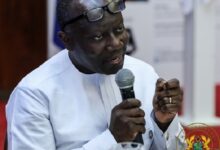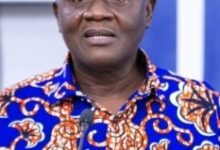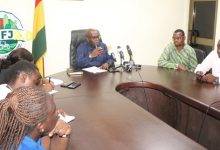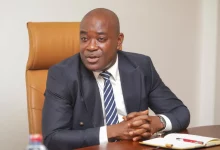The current debate in Parliament is over the referral of three Members of Parliament to the Privileges Committee of the House for absenting themselves for more than 15 days without permission since January 25, this year.
The Speaker of Parliament, Mr Alban Sumana Kingsford Bagbin, referred the Assin Central Member, Kennedy Agyapong; Dome Kwabenya, Sarah Adwoa Safo; and Ayawaso Central Member, Henry Quartey, to the Committee because their numbers of days of absenteeism are in violation of Article 97(1)(c) of the 1992 Constitution, which frowns on MPs’ avoidance of parliamentary sittings.
It must, however, be noted that MPs can absent themselves from sittings with permission from the Speaker to carry out certain assignments or when they are sick.
MPs’ regular attendance is a constitutional matter because the 1992 Constitution requires that one-third of MPs (92 of the 275) must be present before parliament can commence business, which means the lack of quorum undermines government business.
Even though the MPs know this, some of them have been absenting themselves from sittings since the country’s Fourth Republican democratic rule started on January 7, 1993.
For instance, Odekro, a civil society organisation (CSO) which, among other things, monitors attendance of MPs at the legislative house, has it on record that from January 2013 to July 2014, the country’s legislators, on the average, missed one in every four sittings.
Another Odekro report also states that on November 20, 2015, Parliament had to postpone a debate on the 2016 budget for lack of quorum.
It provides an interesting report that in 2017, Parliament was made up of 139 retained (old) and 136 new members and that 63 per cent of the MPs who were in the House for multiple times (that is, the old ones) absented themselves for more than 15 sittings and in some cases without permission.
It is not as if absenteeism of MPs from sittings is not a worry to the public but who qualifies to petition or complain about it is at issue.
In August 2018, another CSO, Economic Fighters League, petitioned the Speaker of Parliament, Professor Mike Aaron Oquaye, to declare the seat of 54 MPs vacant for absenting themselves more than fifteen times in the first session of the seventh Parliament of the Fourth Republic but to no avail, probably because such a petition should not come from a private source.
The current debate, interestingly, was sparked by a former National Democratic Congress (NDC) MP for Kumbungu, Mr Ras Mubarak, following a petition he sent the Speaker of Parliament.
Unlike Prof. Oquaye, why Mr Bagbin does not want to implement a private person’s petition to face the opposition of the Minority Chief Whip and NDC MP for Asawase, Alhaji Mohammed Muntaka and other members of the Minority?
Alhaji Muntaka has indicated that he would file a substantive motion to challenge the Speaker’s action because the Standing Orders provide in 76(1) that “every application to Parliament shall be in the form of a petition, and every petition must be presented by a Member who shall be responsible for the observance of the rules, pointing out that provisions incapacitates the Speaker from accepting a petition from non-Members on the conduct of the lawmakers.
The Minority Chief Whip expresses the danger that if the Speaker is allowed to arrogate to himself powers he does not have as to taking petition from outsiders to refer MPs to the Privileges Committee, one day a dictator Speaker would do worse things.
However, the NPP caucus, to which the three MPs belong, is arguing that the determination of impropriety or otherwise against an MP in Article 97(1)(c) ends at the Committee and not the plenary and that subjecting the work of the Committee to the scrutiny of the plenary would be unconstitutional.
The debate is highly interesting because under normal circumstances, the Minority side should have pushed for the referral and for the expulsion of the colleagues on the other side, particularly at a time the Legislature is a hung one and by-elections resulting from such expulsions could or may favour the Minority.
If the people’s representatives would go on the non-partisan path as Alhaji Muntaka and other NDC members are doing, then there is no doubt the country’s legislature would truly ensure the good of the people.
Definitely, there must be others who would support the NPP’s stance.
In the face of the circumstances, the Ghanaian Times only suggests that Parliament should tread cautiously to improve the country’s legislative processes rather than undermine them.





